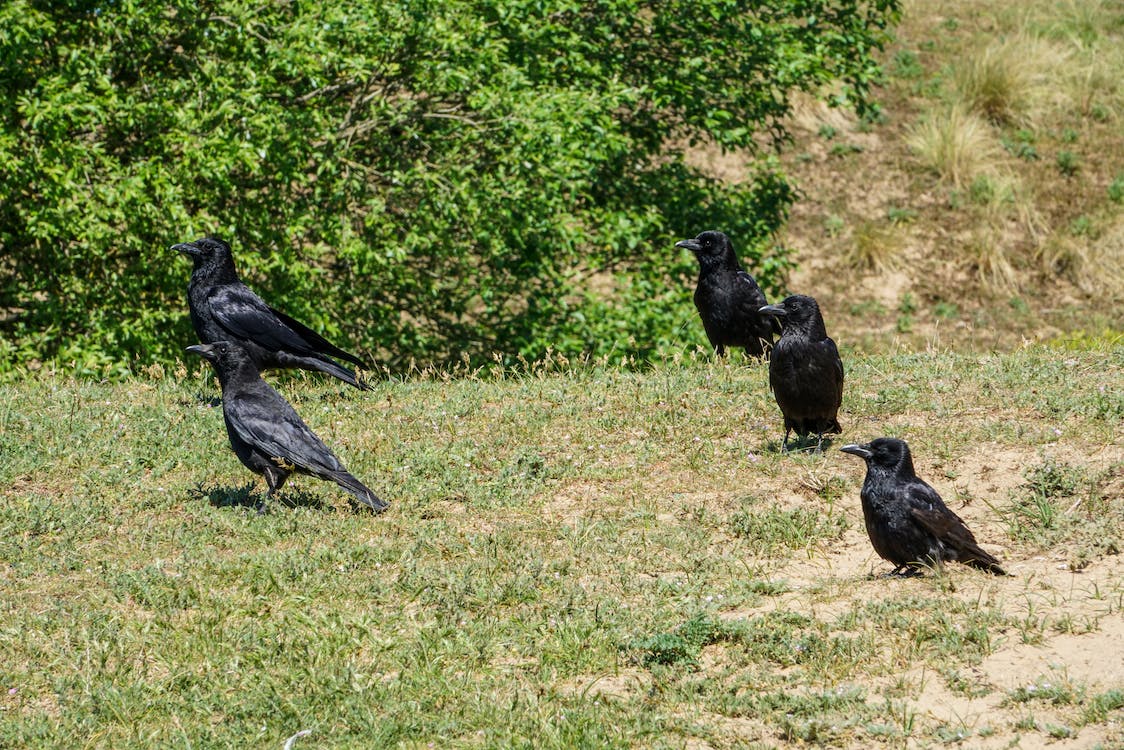Monday’s Child is Fair of Face: Divination Rhymes
Happy Weird Wednesday! A common divination rhyme says if you’re born on a Wednesday, you’ll be “full of woe.”
Maybe not the best news. Anyhow, today we’re going to look at some rhymes that purport to tell the future, starting with:
Days of the Week
Monday’s child is fair of face,
Tuesday’s child is full of grace.
Wednesday’s child is full of woe,
Thursday’s child has far to go.
Friday’s child is loving and giving,
Saturday’s child works hard for a living.
And the child born on the Sabbath day
Is bonny and blithe, good and gay.
(Curious about your day of birth? Plug your date into this calculator.) I was born on a Thursday myself, which is not much better than Wednesday. But there are many other version of this rhyme (though we Thursday folks still don’t tend to do well).
Born of a Monday, fair in face
Born of a Tuesday, full of God’s grace
Born of a Wednesday, merry and glad
Born of a Thursday, sour and sad
Born of a Friday, Godly given
Born of a Saturday, work for your living
Born of a Sunday, never shall we want
So there ends the week, and there’s an end on’t.
Other (occasionally rude) differences include:
Monday: full in the face
Tuesday: solemn and sad
Wednesday: merry and glad and born to power
Thursday: inclined to thieving (ouch), many losses to endure, and finally, welcome home. (Aw, thanks.)
Friday: free in giving and loving and kind
Saturday: lags far behind
Sunday: a gentleman and of a contented mind
These rhymes are sometimes used to teach children the days of the week, but on this blog, we’re going to turn them into writing prompts.
- What if it’s true? You could create a fantasy world where day of birth really does determine one’s fate. You could choose from any of the examples above or make up your own. What if day of birth determined length of life, number of children, or spiritual gifts? It could also easily be used for discrimination, with rules about who is allowed to marry or be in power/do certain jobs. Would parents try to induce labor on auspicious days?
- What if it’s not true? Or perhaps the whole thing is backwards. Maybe there’s a downside to being “fair of face” or “loving and giving,” and advantages to “lagging far behind” or being “sour and sad.” You could also have a self-fulfilling prophecy situation: the day of birth makes no real difference, but people believe that it does, and unconsciously steer their lives in that direction.
Note: there are other day-of-the-week rhymes as well:
Sneezing:
If you sneeze on a Monday, you sneeze for danger;
Sneeze on a Tuesday, kiss a stranger;
Sneeze on a Wednesday, sneeze for a letter;
Sneeze on a Thursday, something better;
Sneeze on a Friday, sneeze for sorrow;
Sneeze on a Saturday, see your sweetheart tomorrow.
Sneeze on a Sunday, and the devil will have domination over you all week.
Cutting fingernails (also used for cutting hair):
Cut them on Monday, you cut them for health;
Cut them on Tuesday, you cut them for wealth;
Cut them on Wednesday, you cut them for news;
Cut them on Thursday, a new pair of shoes;
Cut them on Friday, you cut them for sorrow;
Cut them on Saturday, see your true love to-morrow;
Cut them on Sunday, the devil will be with you all the week.
So watch out with your personal hygiene on Sundays!
Counting
There are also rhymes that predict the future based on counting groups of objects (usually buttons on a shirt, seeds, stones, or flower petals). In its original (sexist) usage, it was used to determine a boy’s future occupation, or for girls, that of their future husband. Recite this rhyme as you count, one word per object:
Tinker, Tailor,
Soldier, Sailor,
Rich Man, Poor Man,
Beggar Man, Thief
If continued, it tells (girls) of their marriage to come:
When shall I marry? This year, next year, sometime, never.
What will I be? Lady, baby, gypsy, queen.
What shall I wear [to my wedding]? Silk, satin, cotton, rags.
How shall I get it? Given, borrowed, bought, stolen.
How shall I get to church? Coach, carriage, wheelbarrow, cart.
Where shall I live? Big house, little house, pig-sty, barn.
You can also count magpies or crows to see what’s in your future. Here are three versions of this rhyme:
One for anger,
Two for mirth,
Three for a wedding,
Four for a birth,
Five for rich,
Six for poor,
Seven for a witch,
I can tell you no more
One for sorrow,
Two for joy,
Three for a girl,
Four for a boy,
Five for silver,
Six for gold,
Seven for a secret never to be told
One for sorrow,
Two for mirth
Three for a funeral,
Four for birth
Five for heaven
Six for hell
Seven for the devil, his own self
And now a couple of writing prompts you can count on!
-
- Que sera, sera. There are obviously more and less desirable fates foretold by the Tinker Tailor rhyme. No woman wants to marry a poor man or wear a stolen wedding dress. Or does she? A heroine might buck tradition and look forward to having a spouse free of the obligations of wealth, and what’s wrong with “borrowing” a dress? You’re only going to wear it once, after all. Sounds like she might have a fascinating life ahead of her. It could also be interesting to change this rhyme to fit the rules of a fictional (queer friendly) universe. What would the occupations be? Would they be different for various genders?
- The raven-black market. What if a society relied on the counting of crows to tell the future? If everyone, families to government, routinely used this information to shape their plans? Some enterprising soul might train a murder of crows to gather in certain numbers. What kind of prices could they command? What mischief could they get up to?
Asking For a Sign
There are a lot of rhymes about the night sky. I grew up with Star light/ Star bright / First star I see tonight/ I wish I may/ I wish I might/ Have the wish I wish tonight.
But there’s also this rhyme about the moon that predicts the future (2 versions given):
New moon, true moon,
True and bright,
If I have a true love,
Let me dream of him tonight!
If I am to marry rich,
Let me hear the cock crow!
If I am to marry poor,
Let me hear the hammer blow!
New moon, true moon, true and bright,
If I have a lover let me dream of him to-night.
If I’m to marry far, let me hear a bird cry;
If I’m to marry near, let me hear a cow low;
If I’m never to marry, let me hear a hammer knock.
Yeah, we’re talking about marriage again. To be fair, it is/was a huge part of most people’s lives. There are, of course, many superstitions/spells that involve dreaming one’s fate, but it’s rarer to name specific signs like bird cries. Here are a couple of dreamy writing prompts:
- Soulmates AU. There are soulmate tropes that involve shared or matched dreaming, but you could use this rhyme to predict certain sounds that would link a character to a future mate. They might grow up hearing a certain bird or a tolling of bells every morning, or even a particular piece of phantom music, a tune only they and their soulmate would know.
- Weird noises. In this rhyme, the sounds are mundane: birds, cows, and hammers, and the future mundane: marriage. But what if the verse could predict darker things like disease, loss, or death? What would be the sounds that foretold those fates? Screaming? Shattering glass? Or perhaps a character hears a certain out-of-place sound every morning, and they know it means something is coming, but they have no idea what. Perhaps wild laughter, running footsteps, or whispering voices.
Thanks for spending your Weird Wednesday here. Remember, if you sneeze today, expect a letter!
Want to chat about the blog? Did you use one of the prompts? Hit me up on social media.
If you like fairy tales and legends, feel free to check out Clamour and Mischief, which contains my story “Branwen and the Three Ravens”: The creepy adventures of a woman seeking to free her brothers from a curse.
You can also read my free queer romance You Don’t Say, about rival psychic investigators.
Sign up for my free monthly newsletter and never miss a blog post! Or subscribe by RSS
Sources & further reading:
Opie, Iona, and Tatem, Moira. A Dictionary of Superstitions. Oxford University Press, 1996. On Goodreads
Sneeze Rhyme on Farmer’s Almanac




